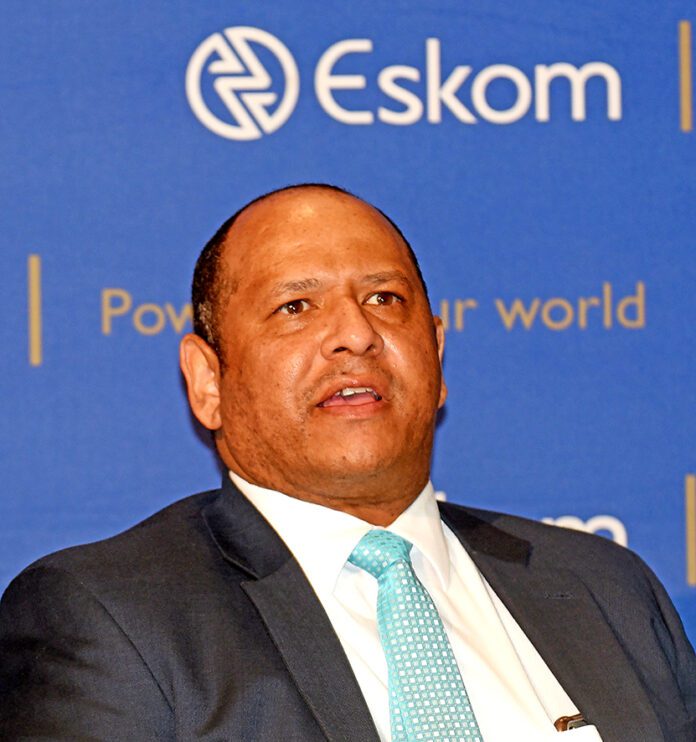This week, the National Energy Regulator of South Africa (Nersa) announced it had approved two significant annual electricity price hikes.
For the 2023/24 financial year, Eskom can increase its electricity tariff by 18.7% to 173.80 cents per kilowatt hour (kWh). Eskom applied for a 32.2% hike for its 2024 financial year, which starts on 1 April.
For the 2024/25 financial year, the power utility can hike its electricity tariff by 12.7% to 195.95 cents per kWh. Eskom applied for a 22.5% power price hike for its 2025 financial year.
Eskom had applied to Nersa for revenue of R351bn for its 2023/24 financial year, but the regulator approved revenue of R318-billion. The power utility applied to Nersa for revenue of R381-billion for its 2024/25 financial year, but the regulator approved revenue of R352-billion.
Nersa said it had conducted public hearings to solicit comments from interested and affected stakeholders regarding Eskom’s application.
“As a result, Nersa received approximately 2 000 written comments from stakeholders, who raised concerns about affordability,” the energy regulator said.
The double-digit power prices hikes come at a time of high inflation, escalating food prices and over 200 days of loadshedding in 2022 that disrupted businesses and households.
The South African Federation of Trade Unions (Saftu) said in a statement that the federation opposed the approval of the 18.7% hike. “It will devastate the budgets of poor and working people, especially women. Eskom has been so badly managed and regulated, that giving it more money is a recipe for failure,” the Saftu said.
“Eskom has blown over R700-billion on capital expenditure since 2007 but is produces 25% less electricity today than then. The money has gone mainly to pay for the corrupt, skorokoro Medupi and Kusile coal-fired power plants, for which Eskom owes most of the R400bn in its liabilities.”
Saftu said since 2007, Eskom’s power tariffs had increased by more than 800% and this level of increase had made electricity unaffordable for poor and working-class people.
“The crisis of Eskom and energy provision is part of a host of crises that have gripped the country, with corruption and austerity, recent employment and poverty,” federation said.
The Energy Intensive Users Group of Southern Africa (EUIG) has 27 major corporate members that together account for over 40% of local energy consumption and collectively contribute to 22% of South African gross domestic product.
The EUIG said in a statement that it was disappointed by Nersa’s decision regarding Eskom’s power tariffs.
“We acknowledge that Nersa had a difficult decision to make in balancing interests of consumer affordability against Eskom’s financial sustainability,” the EUIG said.
“Our concern is that Eskom’s electricity prices are increasingly out of line with our competitor countries, and high annual increases will result in our industries becoming progressively more uncompetitive, and eventually shutting,” the EUIG said.
The Minerals Council South Africa in a statement said it had noted with dismay the above-inflation electricity tariff increases granted to Eskom, which is struggling to adequately supply the country with power, and the negative consequences for the economy and employment.
The latest tariff increases mean the mining industry’s electricity costs will increase by R13.5-billion, or 33.7%, to R53.5-billion by the end of 2024.
Since 2008, the price of electricity for the mining industry has increased eightfold while consumer prices, as measured using the consumer price index have only doubled.
Electricity will make up about 12.5% of South African mining costs by the end of 2024 from about 9% now.
“These increases the National Energy Regulator of South Africa granted Eskom fundamentally shift the intermediary cost structures in mining. Due to the different electricity consumption densities of various mining commodities, the impact is not the same across the sector, but this is deeply concerning,” Minerals Council chief economist Henk Langenhoven said.
In a statement, Eskom said it appreciated the decision made by Nersa regarding Eskom’s revenue for the 2024 and 2025 financial years. “Once Nersa decides on the restructuring of tariffs (as submitted during August 2020 and 2022), these decisions will ensure Eskom can apply the adjustments to its customers from 1 April 2023,” Eskom said.
Nersa’s decision follows a court ruling in July 2022 that ordered Nersa to undertake the necessary regulatory steps to assess, consult and decide on Eskom’s Multi-Year Price Determination application for its 2024 and 2025 financial years by 24 December.
However, Nersa was granted an extension to decide by 12 January 2023.
“This decision will positively contribute from a financial and sustainability point of view,” Eskom CFO Calib Cassim said.
For more business news from Sunday World, click here.
Follow @SundayWorldZA on Twitter and @sundayworldza on Instagram, or like our Facebook Page, Sunday World, by clicking here for the latest breaking news in South Africa. To Subscribe to Sunday World, click here




